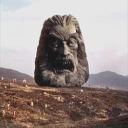Yahoo Answers is shutting down on May 4th, 2021 (Eastern Time) and beginning April 20th, 2021 (Eastern Time) the Yahoo Answers website will be in read-only mode. There will be no changes to other Yahoo properties or services, or your Yahoo account. You can find more information about the Yahoo Answers shutdown and how to download your data on this help page.
Trending News
Were there such things as protons and such or did they come later after the big bang?
9 Answers
- scowieLv 67 years agoFavorite Answer
There have always been protons, just as there has always been a universe. There never was a big bang. This documentary may enlighten you...
- ZardozLv 77 years ago
The hadrons (protons, neutrons, blah, blah, blah…) formed between 1/1,000,000 of a second and 1 second following the Big Bang during what is called the Hadron Epoch. That was followed by the Lepton Epoch from 1 second to 10 seconds. The leptons are the electrons, muons, tau and their neutrinos, and their anti-partical friends. The Lepton Epoch was followed by the Photon Epoch which lasted 380,000 years. In the first 16 minutes of the Photon Epoch the Universe cooled enough for the atomic nuclei of H, He and a tiny bit Li to form. At about 70,000 years the hot nuclei soup started getting lumpy. At 380,000 years the Universes had grown cold enough for the nuclei to capture electrons to become neutral atoms. At that point a stewardess announced that the photons could unbuckle their seat belts and move freely around the Universe.
Source(s): [n] = 10ⁿ - Stan DaloneLv 77 years ago
There was no matter at all at the moment of the Big Bang. The super-early universe was just too hot for matter to exist--all that existed was energy. Once the temperature cooled to, say, a trillion degrees, matter precipitated out of the energy--including protons.
- RaymondLv 77 years ago
"The Big Bang" is not the name of an event, but the name of a theory (a model) that explains the effect of the expansion of space on the energy content of the universe.
From our frame of reference, the energy density goes down as space expands (same amount of energy, more space to spread it out) so that the average "temperature" of the universe keeps decreasing.
Using the rate of expansion, it is possible to calculate backwards (towards the past) and determine the higher densities that existed in the past. As various levels of density, things "behaved" in different ways (the same way that boiling water does not behave the same as solid ice).
However, there is a point in time when the energy density would have been so high, that we no longer understand how things work. We don't even understand how time itself can flow at that level of density. This does not mean time did not flow... but it does mean we do not understand how.
That moment (roughly 13,700 million years ago from our frame of reference) is called the Planck Time.
At that moment, matter did not yet exist. Even the forces did not yet exist. Gravity? We do not know (there seems to be a direct link between time and gravity - and if we don't understand time at that moment, then we cannot understand gravity either).
As far as we can understand, only pure energy existed at the Planck Time. And it was NOT at an infinite density (not a singularity). Space was already expanding. Whatever "caused" the existence of energy and the expansion of space, must have happened "before" (and since we don't understand time at that moment, the word "before" must be special).
After the Planck Time, once the energy density came down a bit, elementary particles "precipitated" from the energy (the same way that if you cool water vapour, you will get drops of liquid water "appearing" from what appears to be thin air).
At first, electrons, neutrinos and quarks.
The quarks could not stay together because the high-energy photons at very high energy levels would immediately knock them apart.
After another period (albeit a short one), quarks could finally form pairs: this gives bosons, and the forces can exist.
After another while, quarks can form triplets, becoming the first particles of "matter": protons and neutrons.
So protons do come AFTER the initial moment we can understand (the Planck Time), even though the interval is a very small fraction of a second.
---
The time known as "recombination", between 300,000 and 400,000 years after the Planck Time, deals with the coming into existence of NEUTRAL hydrogen = electrons are finally able to stay in orbit around protons. Protons had existed since the first second (and so did electrons) but the force that keeps an electron in orbit around a proton is quite weak, compared with the high-energy photons that existed early. As soon as an electron tried to orbit a proton, it would be knocked away by a high-energy photon.
When the "temperature" of the universe finally dropped below 4000 K (= roughly 7000 F), the energy density was low enough for "normal matter" (neutral atoms) to finally exist. Molecules could certainly not exist before then (the force holding molecules together is even weaker).
- How do you think about the answers? You can sign in to vote the answer.
- 7 years ago
In our universe, particles such as protons didn't exist for about 300,000 years *after* the big bang occurred. It took that long for the energy that created our universe to expand & cool enough to actually form them.
- Ray;mondLv 77 years ago
That is a good answer: Protons, electrons and everything else other than God came at or after the big bang according to most experts.
- MorningfoxLv 77 years ago
Protons came after the initial "big bang" event, after the first microsecond. Before that, matter was all free quarks and leptons, not yet bound together into protons and neutrons.
Before the first picosecond, even the quarks didn't exist -- it was just pure energy.
- Tom SLv 77 years ago
The Big Bang is still happening (expansion of the universe), baryonic matter formed after the period of inflation.









